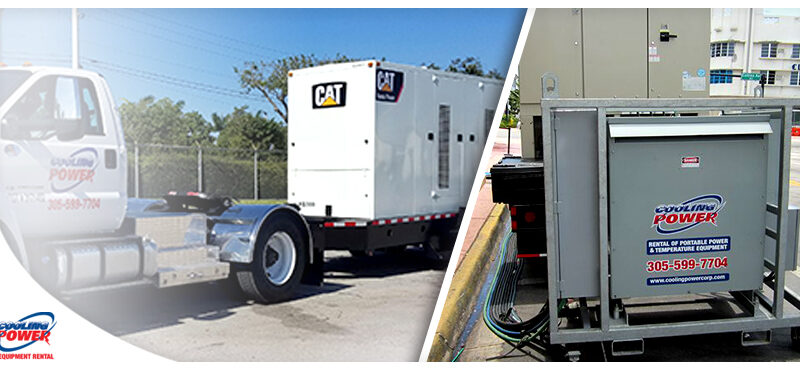If you are stuck between buying power equipment—such as a power generator or transformer—and renting one, there are several factors to consider before you pick one option over the other. On one hand, if you anticipate a constant need, do not expect your usage capacity or needs to change much over time, and have the facilities and staff to operate one, then buying could be a suitable option.
On the other, if you only ever need such equipment during an emergency or as a backup, you may be better off renting one when necessary. Renting a power generator is not only a cost-effective solution and temporary fix, but allowing a provider to be responsible for caring for and maintaining specialized equipment will lower your overall costs and help you be more efficient. If you are still on the fence about buying or renting, here are a few tips to help you decide.
Advantages of Buying
Whether for standby or prime power, if you anticipate having long-term usage needs for power equipment, investing in buying one could be the most cost-effective solution that will also mitigate any risks from not having a permanent power supply readily available. It will ensure there is no downtime in power generation throughout your business operations, and it may even be your only option should you require a custom-engineered generator to meet your facility’s needs.
Although the initial cost of investing in a generator or transformer is expensive, depending on your needs, it may save you money in the long run. Depending on how often you need to use it, the cost of renting a unit will quickly add up and eventually surpass the cost of buying one outright. Furthermore, by being the owner of the unit, you are free to upgrade it as you see fit or even sell it in the future should you no longer require it. In the end, whether the cost of buying one is worth it or not will depend entirely on your usage of the unit.
Advantages of Renting
While you may need an ancillary power generator or transformer occasionally, it may only be on a seasonal basis or in the case of an emergency. In such cases, buying power equipment like a generator will be too costly, and renting can instead meet your needs at a lower overall cost. A temporary unit can help you in the event of a loss of electricity, allowing you to maintain business operations until engineers can repair the electrical grid, which you can return afterward with little capital lost.
Not only does renting allow you to save money, but it also provides you with a means to supply power wherever necessary, even in remote locations. This makes it ideal for construction sites or any outdoor locations, as rental units are usually on movable skids or trailers, making them mobile units that can operate almost anywhere.
Finally, when it comes to maintenance and care, with a rental, you can rely on your provider to ensure that the unit is in proper working order or to otherwise service it should it need maintenance.
Which Should You Choose?
Whether you should buy or rent power equipment is entirely dependent on how you plan to use them. If you anticipate long-term sustained usage, buying the equipment might be the best solution. However, if you only require them on a seasonal or temporary basis, buying might not be worth the investment, making rental units an ideal solution to meet your needs.
If you are looking for a temporary power generator, transformer, or distribution panel to meet your business’s operational needs, Cooling Power Corp offers rental equipment that can help you maintain power and protect your brand. Contact us today for quality and reliable power equipment!

